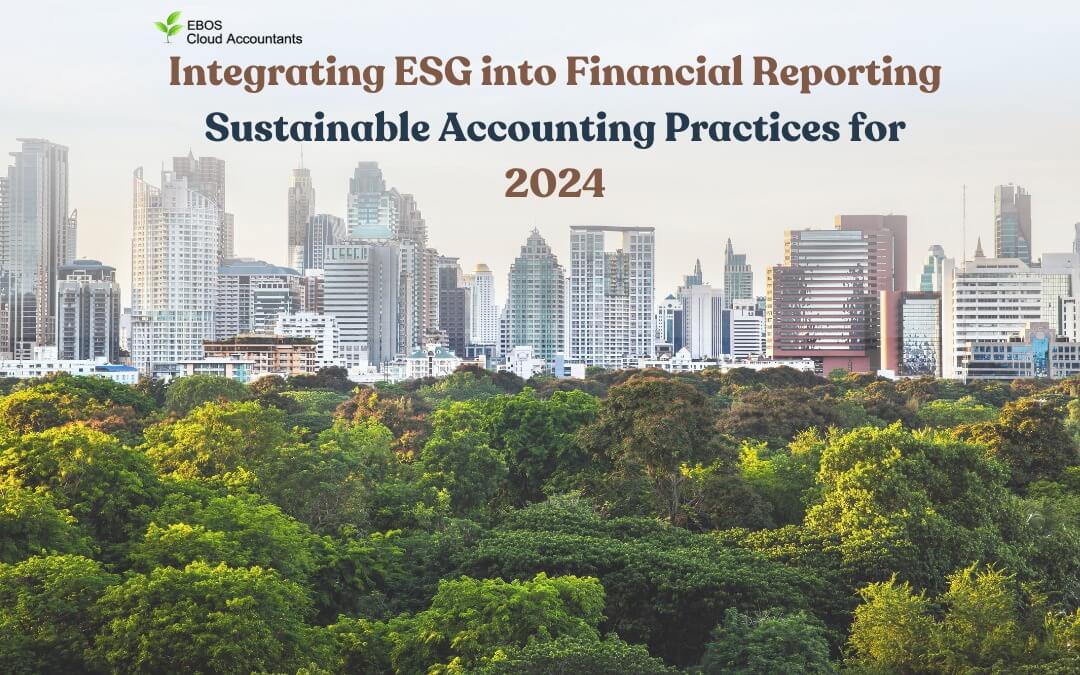Businesses’ social and environmental implications are becoming more widely recognized. Investors are looking for companies that can demonstrate corporate sustainability. Consumer behavior is influenced by social awareness and justice.
All of these issues have prompted companies to report on their non-financial success. Accountants can assist in this situation. Accounting professionals are uniquely qualified to support organizations in their long-term development due to their expertise in analysis, reporting, and impartial advice.
An Overview of Sustainability Accounting
The reporting of non-financial information as a result of an organization’s performance is known as sustainability accounting. Typically, this focuses on a company’s social and environmental implications as well as its performance.
Accounting firms can profit significantly from sustainability accounting. As more businesses begin to understand and report on their sustainable operations and implications, they will seek outside counsel.
The Importance of Sustainability Reporting
To appreciate the importance of sustainability reporting, you must first grasp how it differs from financial reporting.
Financial reporting, at its most basic, is concerned with documenting and communicating financial performance. This is done through income statements, balance sheets, and cash flow statements. The goal is to measure and analyze business performance using money inflows and outflows.
ESG Advantages for Accountants
Sustainability accounting requires monitoring and reporting in a way that ensures accuracy.
The capacity to independently publish ESG data can help firms be more honest about their sustainability. This is important. The only way for a company to adjust its behavior for long-term development requires honest, open dissemination of high-quality, reliable data.
Accountants are in a unique position to provide this service because of their existing skill set and reputation.
ESG’s Growing Popularity
ESG-based sustainability accounting allows organizations to report on a broader variety of issues. This, in turn, can boost consumer confidence by providing a better understanding of a company’s social responsibility impact.
However, the need for ESG and sustainability reporting is expanding due to factors other than societal or political pressure. ESG factors are now being factored into investment decisions.
Finally, the rise in ESG is being driven by business. The political demand comes in second. While regulation is now focusing on larger organizations, there is no reason why small and medium-sized businesses cannot begin to consider sustainability accounting.
Environmental Aspects
The environmental impact of a corporation should be accounted for in sustainability accounting.
This typically includes (but is not limited to) reporting on:
- Energy Consumption
- Wastage
- Exploitation of Natural Resources
- Pollution
Environmental opportunities must also be reported on. Where might the company reduce its environmental impact? Any sustainability reporting should contain opportunities.
Final Takeaways
Accountants have a lot to offer when it comes to reporting on a company’s long-term viability. Corporate sustainability reporting is a rising business as industries seek to invest in sustainable development.
Accountants are well-positioned to diversify into sustainability reporting since they can provide trustworthy independent reporting and advice.
To begin, ESG provides a dependable framework and sustainability reporting criteria for organizations. At EBOS Cloud Accountants you learn more about ESG by communicating with our company representative.
To learn more about EBOS Cloud Accountants, click here.







